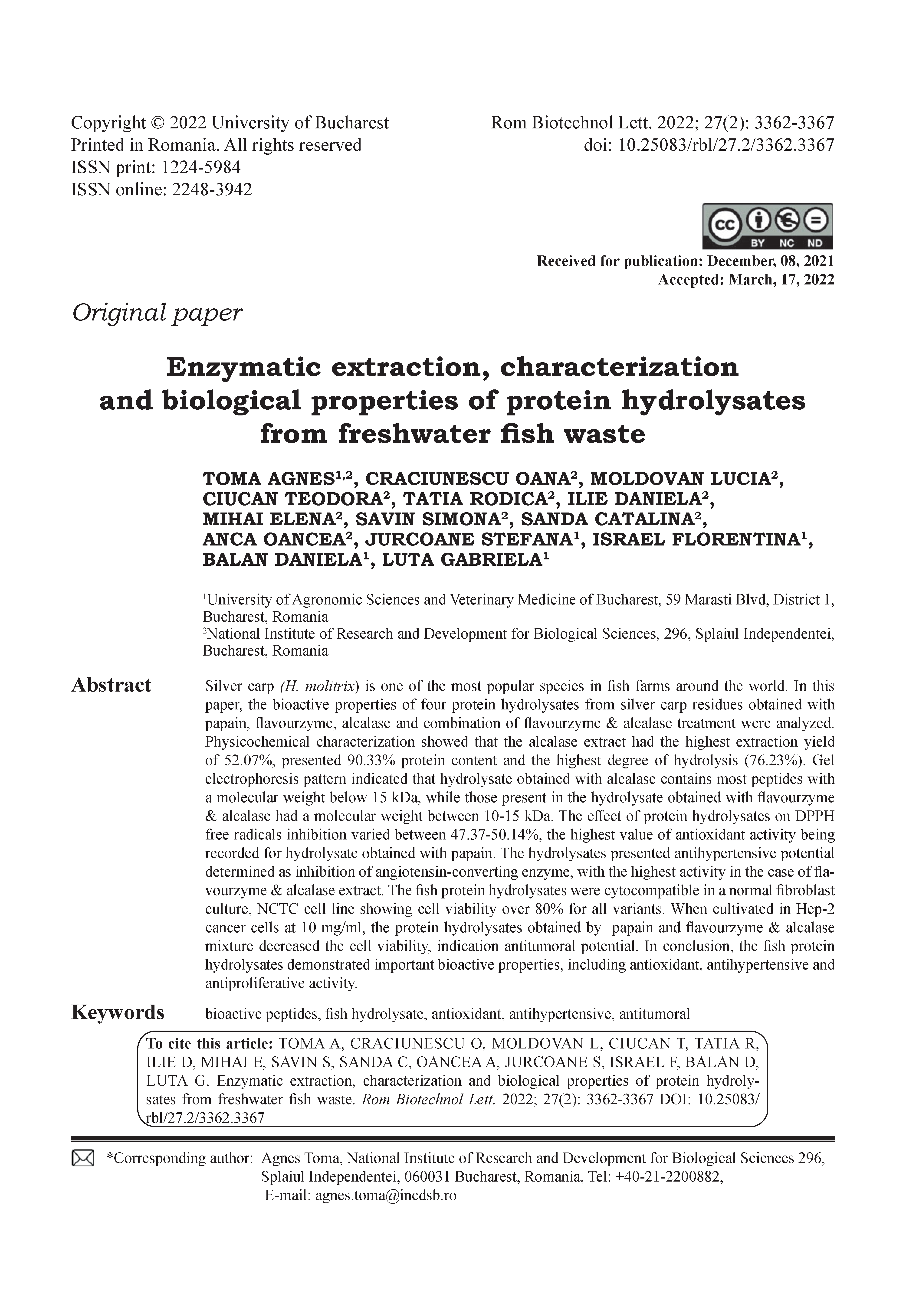Enzymatic extraction, characterization and biological properties of protein hydrolysates from freshwater fish waste
DOI:
https://doi.org/10.25083/rbl/27.2/3362.3367Keywords:
bioactive peptides, fish hydrolysate, antioxidant, antihypertensive, antitumoralAbstract
Silver carp (H. molitrix) is one of the most popular species in fish farms around the world. In this paper, the bioactive properties of four protein hydrolysates from silver carp residues obtained with papain, flavourzyme, alcalase and combination of flavourzyme & alcalase treatment were analyzed. Physicochemical characterization showed that the alcalase extract had the highest extraction yield of 52.07%, presented 90.33% protein content and the highest degree of hydrolysis (76.23%). Gel electrophoresis pattern indicated that hydrolysate obtained with alcalase contains most peptides with a molecular weight below 15 kDa, while those present in the hydrolysate obtained with flavourzyme & alcalase had a molecular weight between 10-15 kDa. The effect of protein hydrolysates on DPPH free radicals inhibition varied between 47.37-50.14%, the highest value of antioxidant activity being recorded for hydrolysate obtained with papain. The hydrolysates presented antihypertensive potential determined as inhibition of angiotensin-converting enzyme, with the highest activity in the case of flavourzyme & alcalase extract. The fish protein hydrolysates were cytocompatible in a normal fibroblast culture, NCTC cell line showing cell viability over 80% for all variants. When cultivated in Hep-2 cancer cells at 10 mg/ml, the protein hydrolysates obtained by papain and flavourzyme & alcalase mixture decreased the cell viability, indication antitumoral potential. In conclusion, the fish protein
hydrolysates demonstrated important bioactive properties, including antioxidant, antihypertensive and antiproliferative activity.





